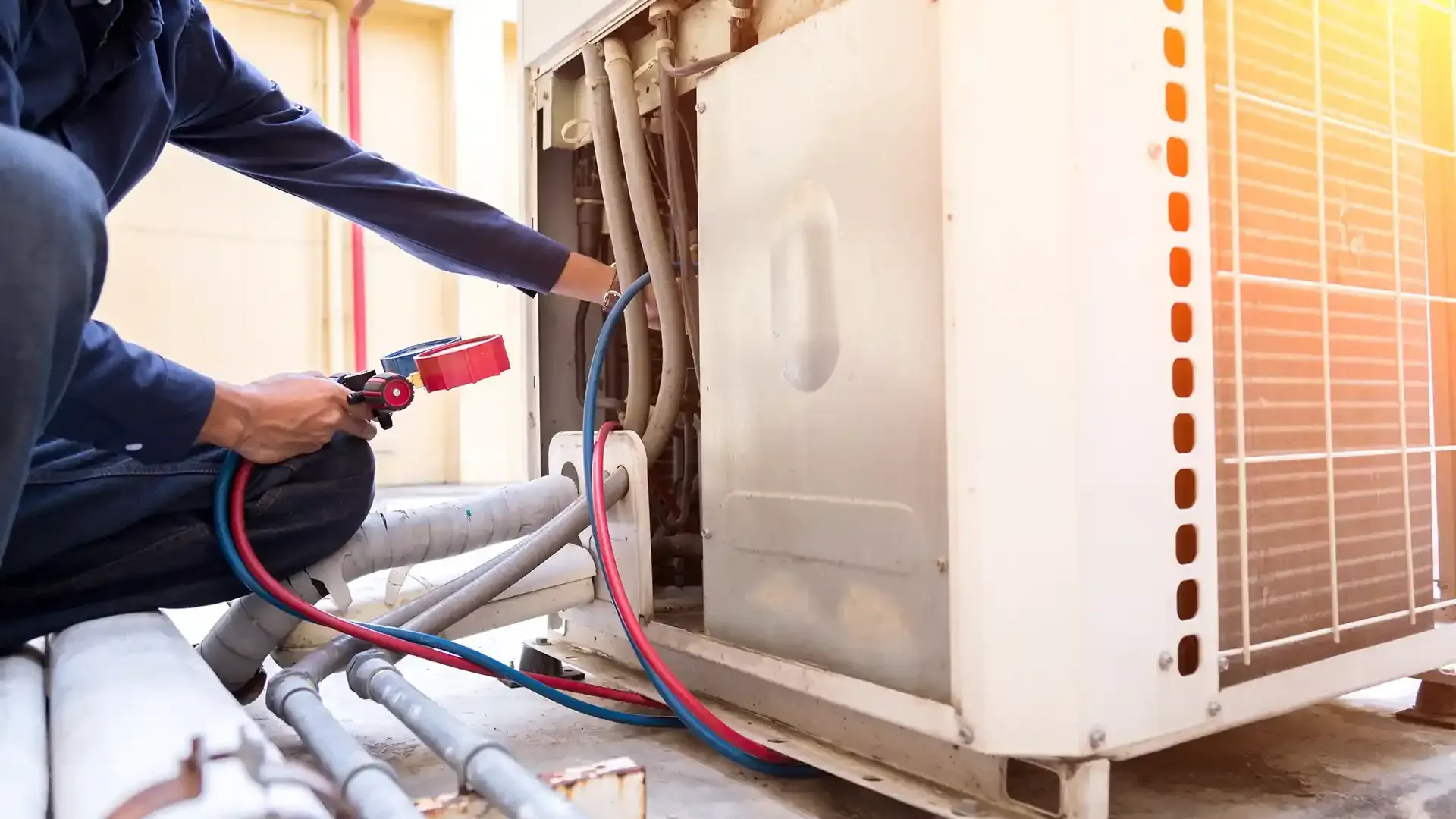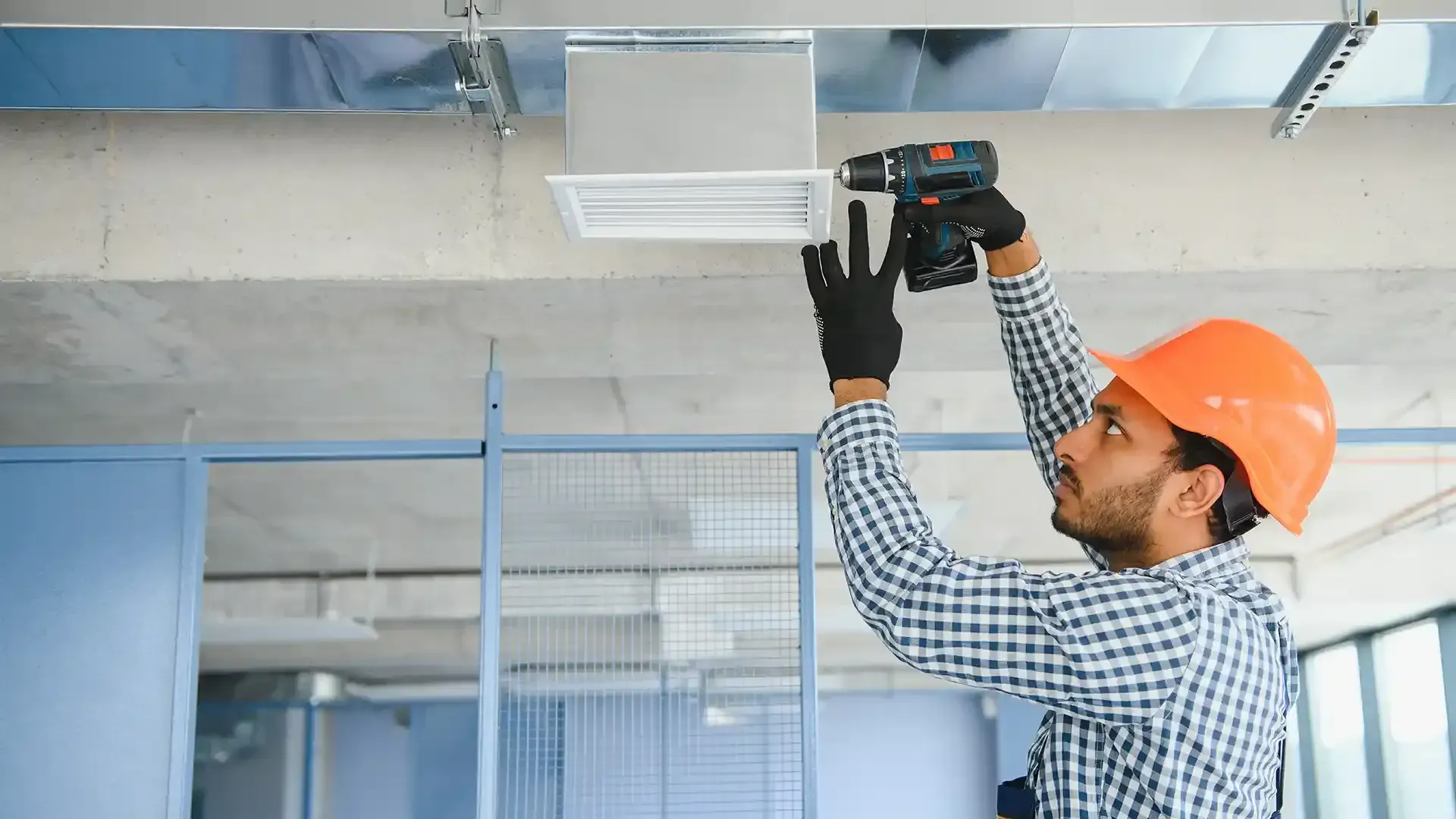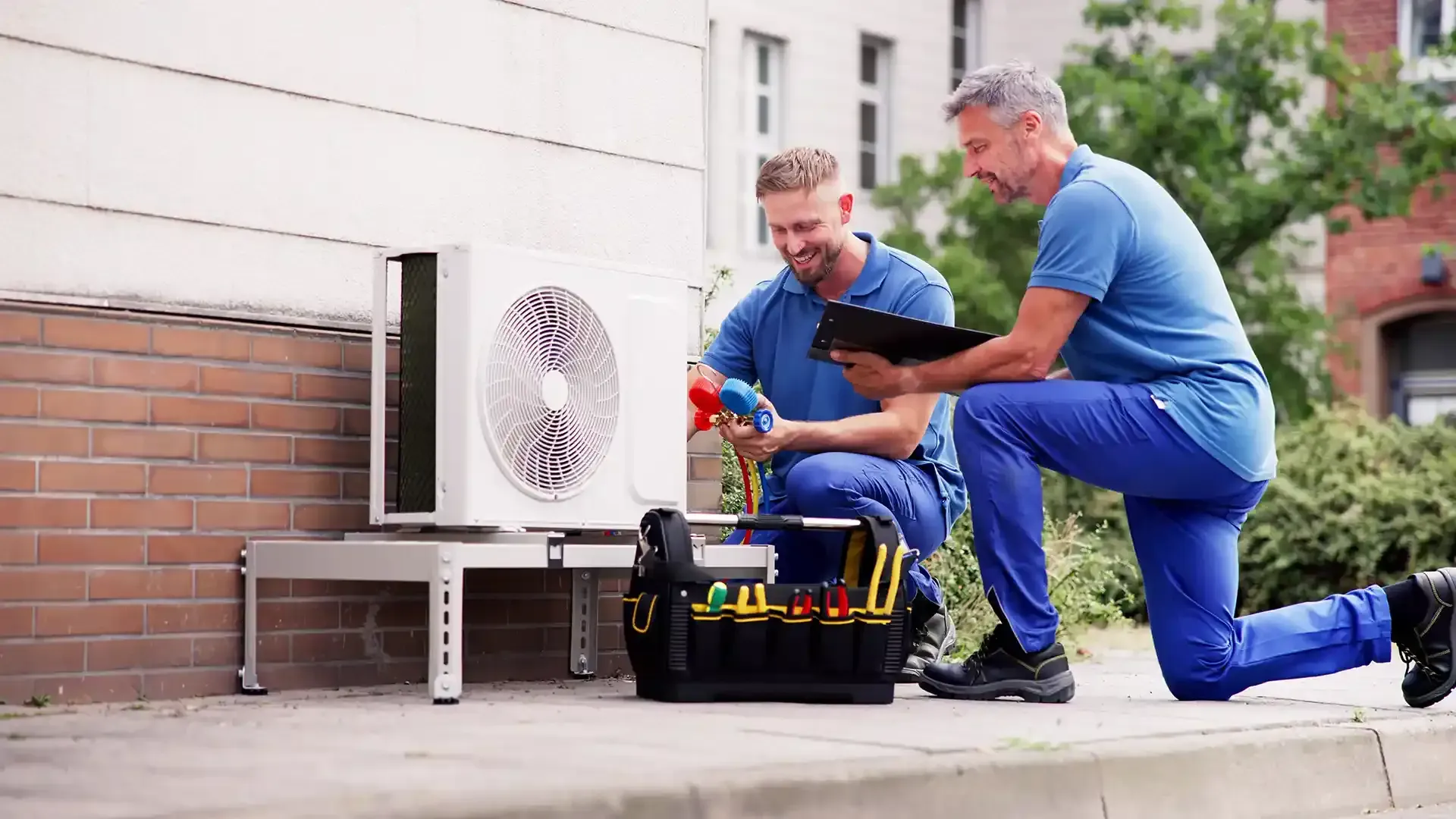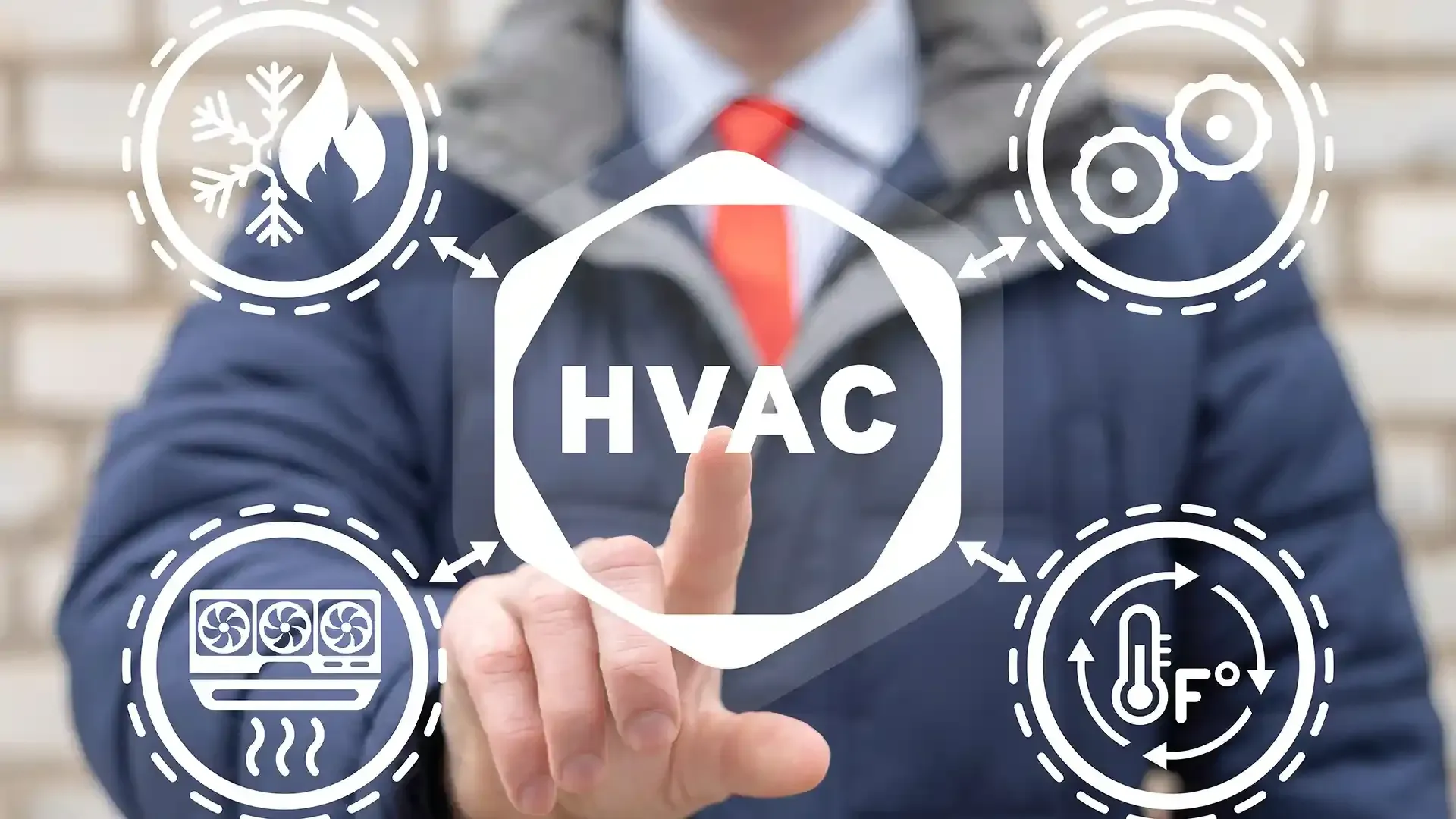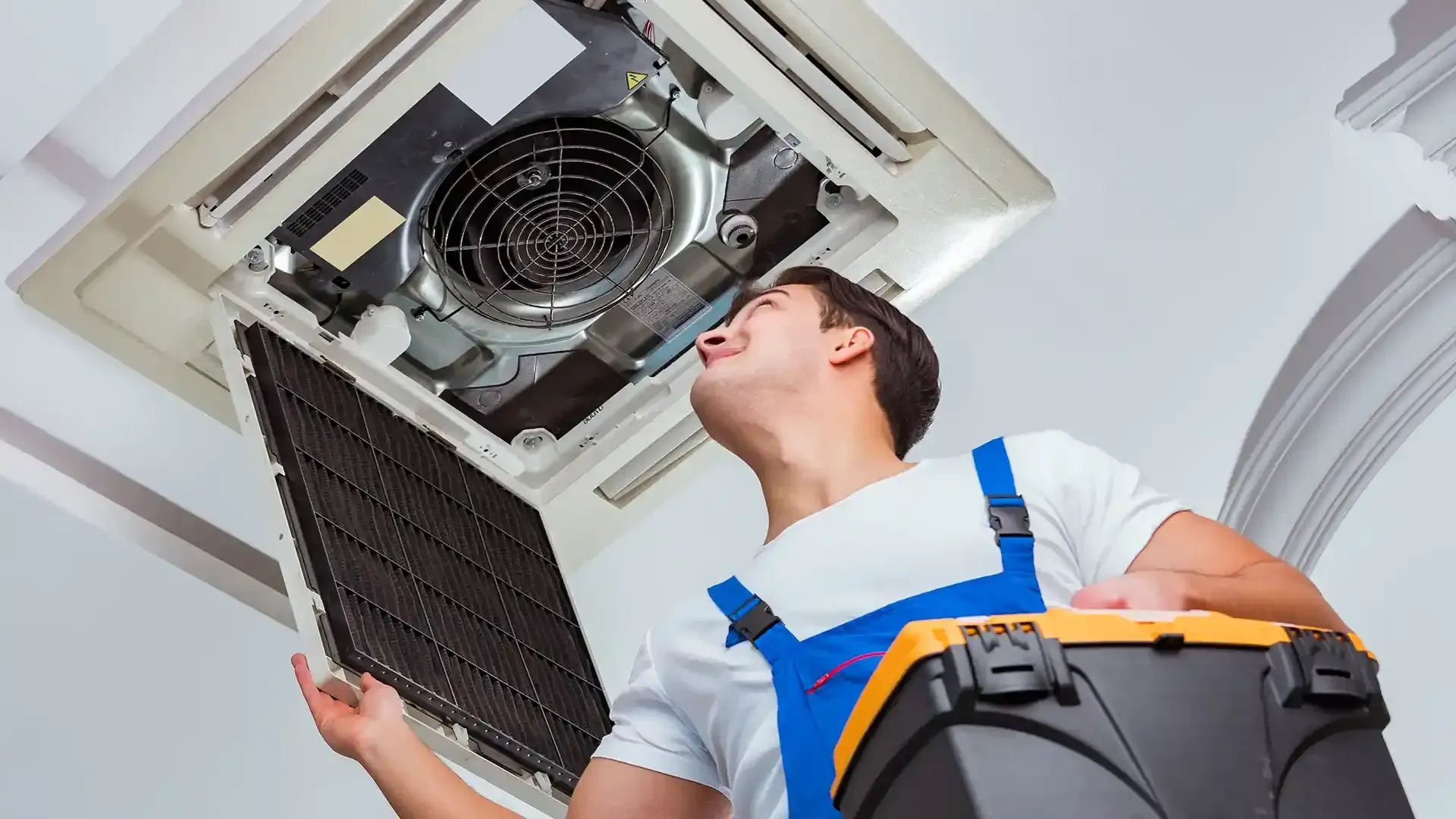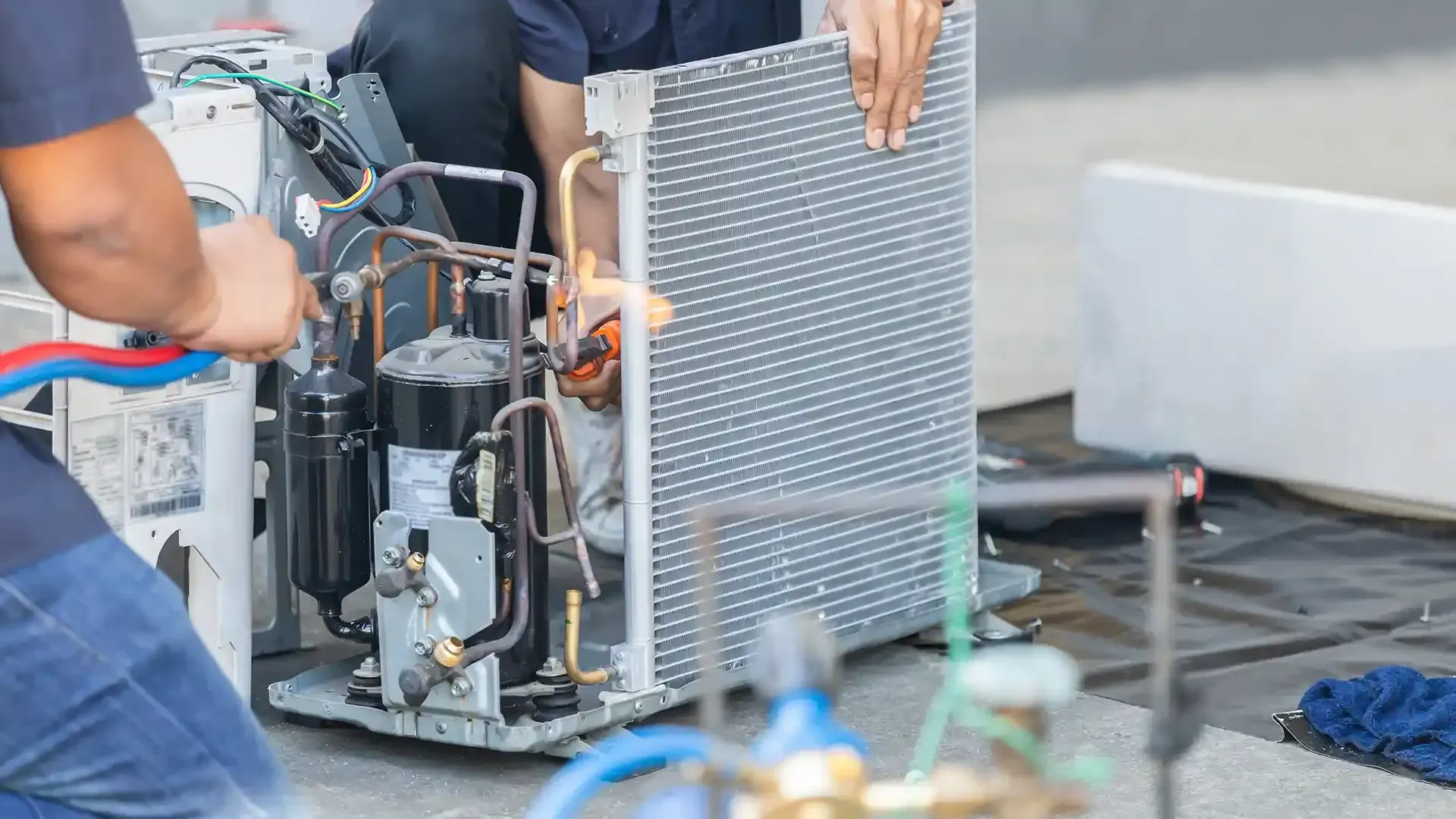Understanding How HVAC Systems Work in Homes
Understanding How HVAC Systems Work in Homes

Keeping your home comfortable regardless of the season is vital, and this is where HVAC systems come into play. Heating, Ventilation, and Air Conditioning (HVAC) systems regulate the indoor temperature, ensure proper ventilation, and filter the air to improve its quality. But, how exactly do HVAC systems work in homes? Understanding this can help homeowners make informed decisions when it comes to installation, maintenance, and repair, as well as why it's best to rely on professionals for these services. In this article, we’ll explain how HVAC works in homes, explore the components that make it functional, and offer insights into maintaining your system for optimal performance.
Key Takeaways
- HVAC systems manage heating, cooling, and air quality in homes.
- The main components include the furnace, air conditioner, ductwork, and thermostat.
- Different types of HVAC systems, such as split systems and heat pumps, offer solutions for various climates and house setups.
- Regular maintenance is essential for long-lasting performance and energy efficiency.
Understanding How HVAC Works in Homes: A Complete Guide
Heating, ventilation, and air conditioning (HVAC) systems play a crucial role in maintaining comfort and air quality in homes. An HVAC system works by regulating the temperature, humidity, and cleanliness of the air inside a home. It begins with the thermostat, which controls the heating and cooling cycles. The furnace or heat pump generates warm or cool air, depending on the season, while the ductwork distributes it throughout the house. In summer, the air conditioning unit absorbs heat from indoors and transfers it outside, cooling the air inside. During winter, the heating element, whether a furnace or boiler, warms the air, which is then circulated. Ventilation ensures that fresh air is brought in from outside and filtered, reducing allergens and pollutants. Together, these systems work seamlessly to create a comfortable indoor environment while also improving energy efficiency and air quality in homes year-round.
How HVAC Works in Homes: A Detailed Breakdown
To understand how HVAC works in homes, you first need to know its core components. The system is designed to manage indoor temperature by controlling the heating, cooling, and airflow throughout the house.
- The Furnace
The furnace is the primary component responsible for heating your home. It burns fuel (like natural gas, oil, or electricity) to generate heat, which is then distributed through a system of ducts. The furnace works in conjunction with the thermostat, which signals when more heat is needed. Once the furnace kicks in, the blower fan sends the warm air through ducts and out of vents in various rooms. - The Air Conditioner
When it comes to cooling, the air conditioner is the star player. Air conditioners remove heat from your home by using refrigerant. The system pulls warm indoor air, which passes over the refrigerant-filled coils. These coils absorb the heat, and then the cooled air is blown back into your home through the same ductwork used by the furnace.
This process of cooling is crucial to how HVAC works in homes, especially during warmer months. - Heat Pumps
Heat pumps are versatile HVAC components that provide both heating and cooling by transferring heat. In the summer, they operate like air conditioners by extracting heat from the inside and releasing it outside. During winter, they reverse the process, bringing heat from outside into your home.
This versatility is part of why many homeowners choose heat pumps, especially in regions with mild winters. - Ductwork and Ventilation
Ductwork is the system of tubes that transports the treated air (either warm or cool) throughout your home. Ventilation is essential to maintain air quality and remove humidity, odors, and pollutants. In modern HVAC systems, filters in the ductwork purify the air, ensuring it’s clean when it reaches different rooms in your home.
Why Professional Installation and Maintenance Matter
A key takeaway in understanding how HVAC works in homes is that professional installation and regular maintenance are essential. Poor installation can lead to inefficiency, higher energy costs, and frequent repairs. Regular maintenance, such as changing air filters and inspecting ductwork, ensures that your HVAC system operates smoothly, preventing costly breakdowns in the future.
Energy Efficiency and HVAC Systems
HVAC systems are major energy consumers in homes, so ensuring their energy efficiency is critical. High-efficiency systems like heat pumps or ductless mini-splits offer greater control over indoor temperatures while using less energy compared to traditional systems. Programmable thermostats can also improve efficiency by optimizing your system’s use, reducing energy waste.
DIY or Professional?
While it might be tempting to handle HVAC issues yourself, it’s best to leave this job to the professionals. HVAC systems are complex and require specialized tools and knowledge for installation and repair. Attempting DIY fixes can lead to further damage or inefficiencies. At Plumber Scranton, we provide expert services to ensure your system runs efficiently year-round. Whether you're installing a new HVAC system or maintaining an existing one, trust us to handle it with care.
Conclusion
Understanding how HVAC works in homes can empower you to make better choices for maintaining and improving your system. From the core components like the furnace and air conditioner to the benefits of professional maintenance, HVAC systems are intricate yet essential for home comfort. Rather than tackling HVAC issues on your own, consider the value of professional services to keep your system functioning efficiently. Plumber Scranton is ready to assist you with all your HVAC needs in Scranton, Pennsylvania. Call 570-243-0180 today to schedule a service and ensure your home stays comfortable all year long.
FAQs
Q: How often should I replace my HVAC filters?
A: HVAC filters should be replaced every 1-3 months, depending on usage and the presence of pets or allergies in the home.
Q: What’s the most energy-efficient HVAC system for a home?
A: Heat pumps are known for their energy efficiency, especially in mild climates. Ductless mini-split systems are also highly efficient for controlling temperature in specific areas of the home.
Q: What does it mean if my HVAC system is making strange noises?
A: Strange noises, such as banging or rattling, could indicate loose parts or issues with the blower fan. It’s advisable to call a professional for an inspection.


